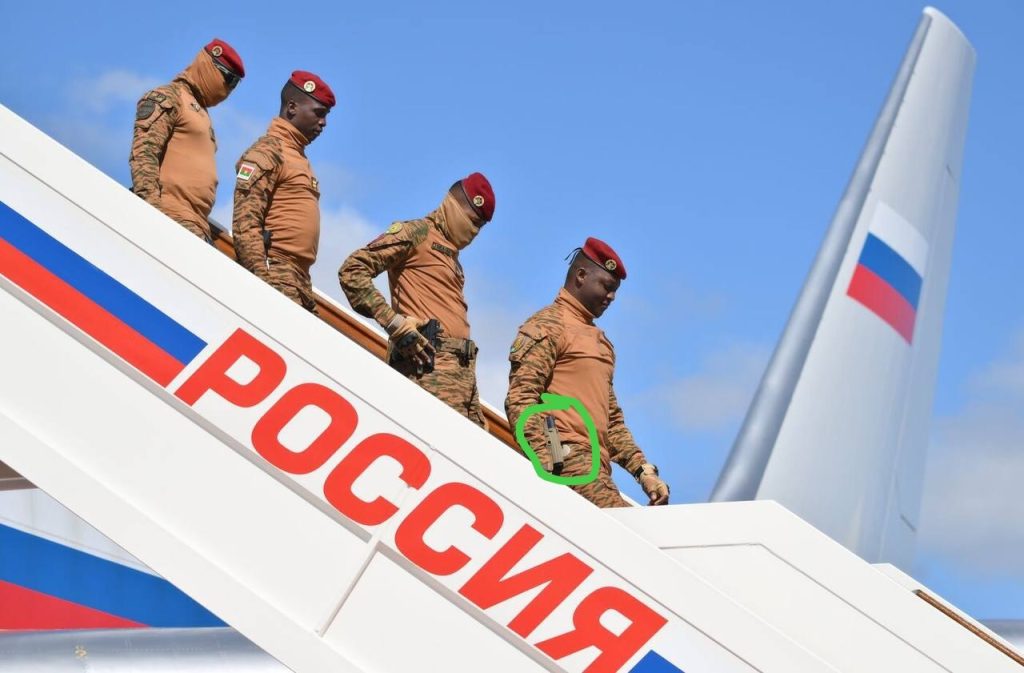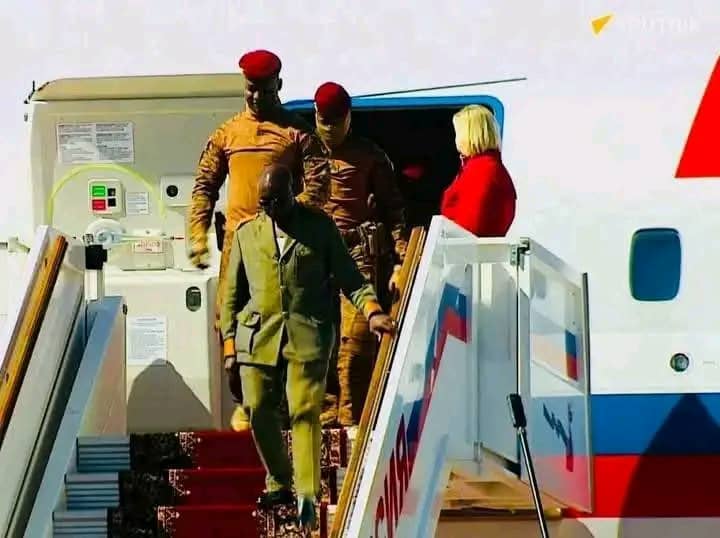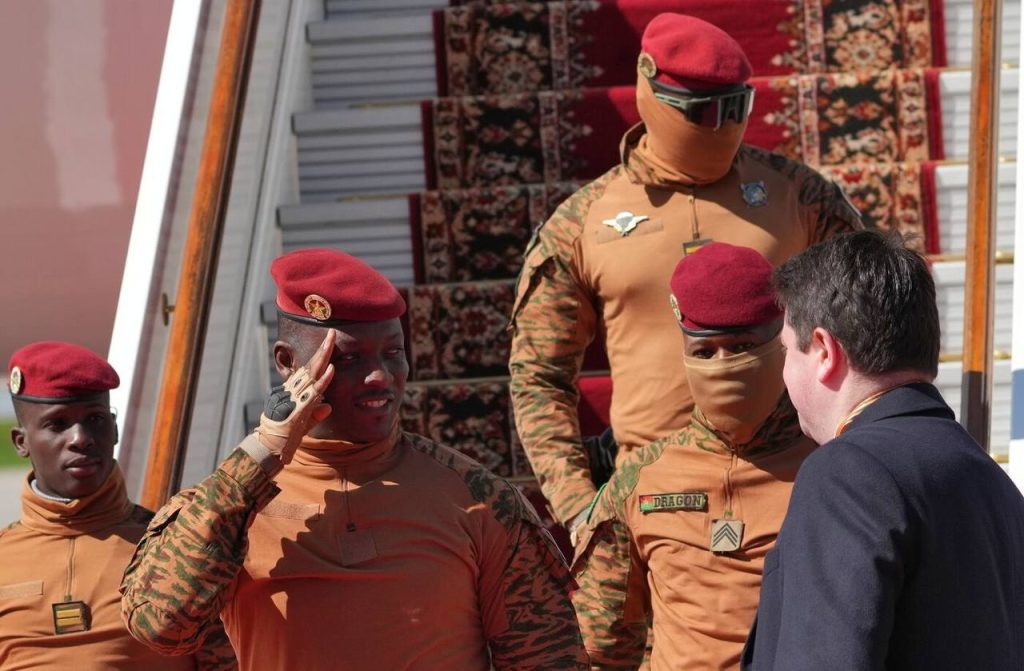In a move laden with both symbolism and strategic importance, Burkina Faso’s transitional president, Captain Ibrahim Traoré, has made a high-profile visit to Moscow at the invitation of Russian President Vladimir Putin. His participation in Russia’s annual Victory Day celebrations, which commemorate the Soviet Union’s triumph in World War II, is being seen as a gesture of strengthening ties between the two nations.

But what has truly captured global attention is the extraordinary level of security and diplomatic respect extended to Traoré by Russia. From the outset, this visit was marked by remarkable coordination and protection. A private Russian aircraft was dispatched specifically to Ouagadougou to pick up the young leader. In a rare show of international protocol, the flight was escorted through the skies by Russian fighter jets—an unmistakable signal of how highly Moscow regards its relationship with Burkina Faso.

This dramatic display of military escort is not merely a ceremonial gesture. It underscores the evolving geopolitical dynamics in Africa, particularly in the Sahel region. Over recent years, Burkina Faso has been redefining its international partnerships amid internal political shifts and the ongoing battle against terrorism. Traoré’s leadership has pivoted the country toward more diversified global relations, moving away from traditional Western alignments and seeking cooperation with non-traditional powers—Russia being chief among them.
The Victory Day event itself is not only a historical commemoration but also a stage for projecting political alliances. Traoré’s presence there, amid a backdrop of military parades and speeches laced with themes of sovereignty and resistance to imperialism, sends a clear message: Burkina Faso is actively shaping its own path on the international stage.

Beyond the optics, this visit is expected to foster deeper cooperation in areas such as defense, infrastructure, and energy. Sources close to both delegations suggest that bilateral talks are taking place behind closed doors to explore partnerships that would support Burkina Faso’s development goals while bolstering Russia’s strategic footprint in West Africa.
As images of Captain Traoré being received in Moscow continue to circulate, many observers see this moment as not only historic for Burkina Faso but also reflective of a broader realignment taking place in global politics—where emerging leaders from the Global South are finding new platforms and partners to assert their nations’ interests.
In a world increasingly shaped by multipolar dynamics, the visit of Ibrahim Traoré to Moscow, wrapped in layers of protocol, protection, and partnership, is more than just a diplomatic trip—it is a statement of new alliances being formed under the eyes of the world.